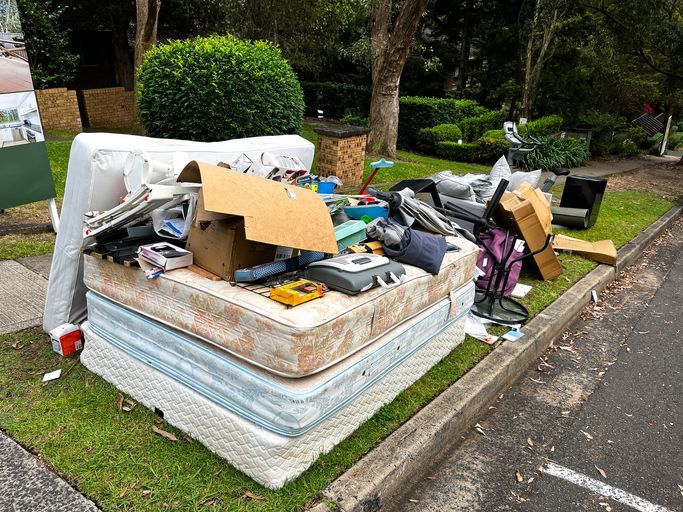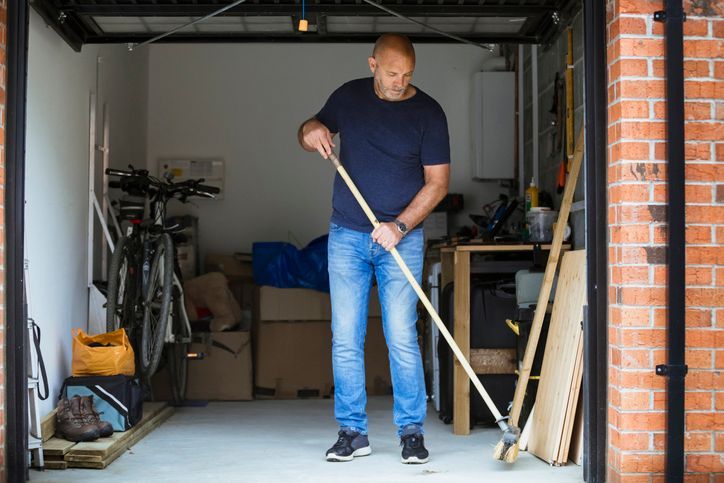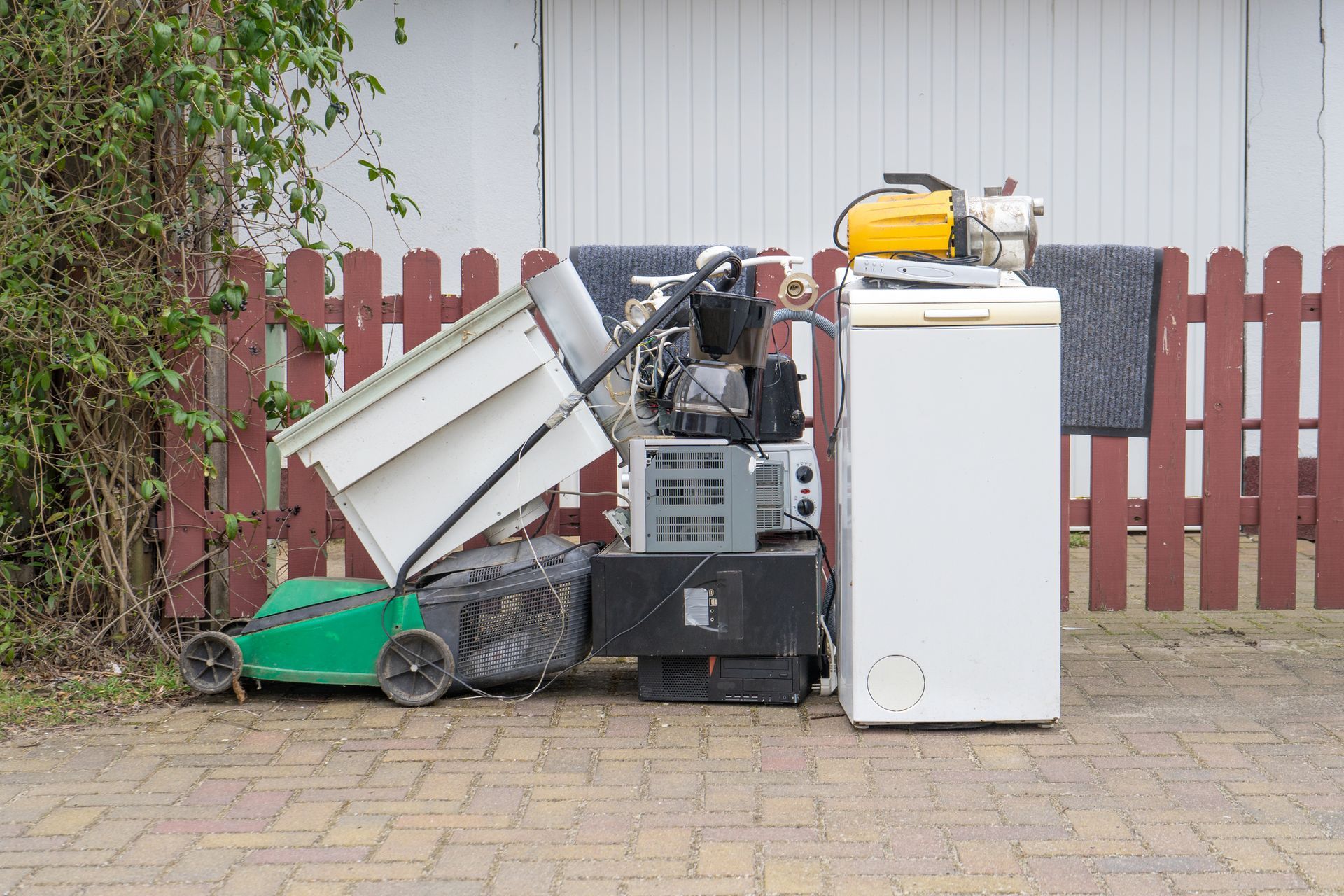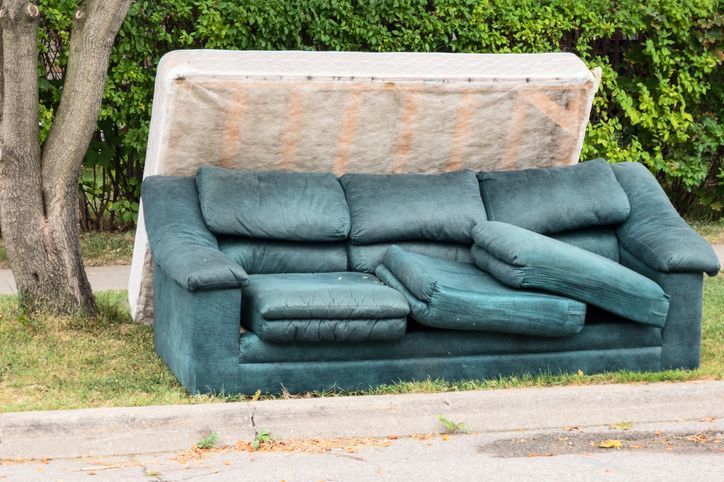Renovating Your Home? How to Handle Demolition Debris in Pittsburgh
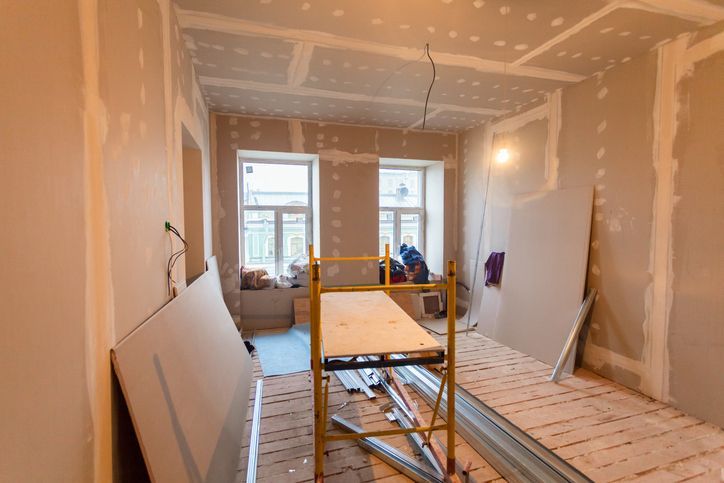
Renovating a home, whether you're updating a single room like your garage or tackling a full-house flip, generates more waste than most people expect. In Pittsburgh, where many homes date back 50 to 100 years, even modest renovation projects often involve removing old plaster, worn flooring, and outdated cabinetry. For DIY homeowners, small contractors, or real estate investors working without the infrastructure of large crews or commercial dumpsters, dealing with demolition debris becomes a key part of project planning.
But what exactly are you allowed to throw away? Where does the debris go? And how can you make sure your cleanup is legal, safe, and efficient? This guide walks you through everything you need to know about home renovation junk hauling in PA, with a focus on Pittsburgh junk removal services tailored to local homeowners and small crews.
Why Demolition Debris Removal Matters in Pittsburgh
Home renovation is not just about what you build—it's equally about what you tear down. And that means disposal. Many Pittsburgh homeowners are surprised by the sheer volume of debris that accumulates during even a small kitchen or bathroom remodel. It's not unusual for a single room renovation to fill multiple contractor bags with plaster, drywall, old tile, or subfloor remnants.
Why Proper Disposal Matters
In Pittsburgh, local household trash pickup does not cover construction and demolition (C&D) materials. The city's waste collection policies explicitly prohibit the disposal of debris like lumber, sheetrock, insulation, and flooring in your curbside bin. Violating these rules can result in fines, refused pickup, or even a citation from the city's Environmental Services division.
For example, while it might seem acceptable to place a broken vanity or bagged debris next to your garbage can, Pittsburgh ordinances typically limit curbside disposal to certain bulk items, and never construction waste.
Environmental Considerations
Beyond the legal requirements, proper disposal also ensures you're not harming the environment unintentionally. Renovation materials often include treated wood, adhesives, and other substances that can leach chemicals if left in the open or illegally dumped. By choosing proper junk hauling services, you can ensure materials are either recycled when possible or disposed of in compliance with environmental standards.
Safety Impacts
Finally, removing debris promptly from your worksite keeps your renovation safer. Nails sticking out of old boards, shards of broken tile, or piles of sheetrock can all present tripping or injury hazards. Keeping the site clean and free of clutter helps prevent accidents and keeps your project moving smoothly.
Common Types of Renovation Debris
Renovation debris comes in many forms, and each type requires a slightly different approach to sorting, staging, and removing it. Whether you're replacing your flooring or gutting a bathroom, it's critical to know what you're dealing with so you can plan accordingly.
Interior Materials
For older homes in Pittsburgh, interior demolition often includes lath and plaster, which is heavier and dustier than modern drywall. If your home was built before 1950, you're likely working with this material.
Drywall is the most common wall and ceiling material in modern renovations. It creates fine, powdery dust that's best kept in sealed contractor bags. You may also be pulling down framing studs or old insulation, all of which take up considerable space once removed.
Flooring
Flooring waste can vary widely by room and by decade of construction. Carpet tends to be lightweight but bulky, and it's often installed with tack strips and padding that must be removed separately. Hardwood flooring and tile, on the other hand, are significantly heavier. Tile, in particular, creates sharp fragments that need to be contained so they don't lead to injury.
In many Pittsburgh homes, multiple flooring layers exist from past renovations, such as tile over linoleum over wood, so it's essential to prepare for unexpected volume.
Kitchen and Bathroom Fixtures
These rooms generate some of the heaviest and most awkward debris. Cabinets can be cumbersome and difficult to fit into a dumpster. Countertops, particularly granite or tile, are extremely heavy and may require two people to move. Toilets, bathtubs, and sinks also add to the bulk of debris and typically need to be carried carefully to avoid cracks and spills.
Exterior Waste
Outdoor renovation projects, such as deck removals or fence replacements, add their own set of challenges. Pressure-treated wood and asphalt shingles often require special disposal considerations. If you're working on both indoor and outdoor projects simultaneously, it's best to coordinate junk removal to account for the size and weight differences in materials.
Small But Hazardous Items
It's easy to overlook small debris like nails, screws, broken glass, and insulation fragments. However, these items pose serious hazards. Always wear gloves, goggles, and dust masks when removing or sorting debris. Even a single loose nail can puncture a tire, and airborne dust can create respiratory issues.
What NOT to Throw in a Dumpster or Trash
While it's tempting to toss everything in a rented dumpster, not all renovation debris can be disposed of the same way. Pittsburgh, like many municipalities in Pennsylvania, enforces restrictions on certain materials that require special handling.
Hazardous Materials
Many common renovation substances fall under hazardous material regulations. Leftover paint, for example, cannot be dumped in landfills due to its chemical content, even if it has dried. Similarly, solvents, varnishes, adhesives, and certain types of treated wood must be taken to designated hazardous waste collection events or facilities.
Asbestos is another major concern. Older Pittsburgh homes may still have asbestos-containing tiles, pipe insulation, or shingles. These materials require professional abatement and must never be removed or disposed of without proper certification and permits.
Electronics and Appliances
Electronics (TVs, monitors, computers) cannot be disposed of through standard trash or dumpsters. Appliances such as refrigerators, stoves, or washing machines may also require special handling due to refrigerants or metal recycling regulations. Pittsburgh offers limited electronic waste drop-off events, and private junk hauling companies often offer safe appliance removal as part of their services.
Local Drop-Off Limits
Pittsburgh's recycling and transfer stations have volume limits for residential drop-offs, especially for non-household materials. Even if you're willing to haul debris yourself, the city's drop-off centers may not accept everything. It's also common for homeowners to be turned away for bringing in what's considered contractor waste.
Understanding these limitations before getting started can help you avoid wasted trips or unexpected costs.
Dumpster Rental vs. Full-Service Junk Removal
Once you understand the types of debris you're dealing with, the next decision is how you'll get rid of it. For Pittsburgh homeowners and small remodelers, the two most common options are renting a dumpster or hiring a full-service junk removal company. Each disposal option has advantages, depending on the size of the project, your timeline, and the space available at your property.
When Dumpster Rentals Make Sense
A dumpster rental works well when your project:
- Generates a large amount of debris over several days or weeks
- Includes heavy materials like concrete or tile that are difficult to load all at once
- Can be staged near the work area (e.g., in a driveway or on a cleared yard)
Dumpster rental allows you to load debris as you go, without scheduling pickups. This can be helpful if your demolition is happening in phases, or if you prefer to work on your own time.
However, Pittsburgh's tight neighborhoods and narrow streets can make dumpster placement difficult. In areas like the South Side Slopes or Bloomfield, you may need a street occupancy permit, which adds extra cost and coordination with the city. Homeowners associations (HOAs) may also limit how long a dumpster can remain on-site.
You'll also need to do all the lifting, bagging, and sorting yourself. For some, this may be manageable. For others, the time and physical labor involved can become overwhelming.
When Full-Service Junk Removal Is Better
Full-service junk removal is often the better choice when:
- You need quick removal — same-day or next-day
- There's limited room for a dumpster.
- You're dealing with large or heavy items (e.g., bathtubs, cabinets, appliances)
- You want professionals to handle the lifting and loading.
Pittsburgh junk removal services typically include labor, hauling, and proper disposal in one bundled quote. This eliminates the guesswork and hidden fees associated with dumpsters, such as overage charges or extra days.
This option often provides a more efficient, reliable solution for homeowners with limited time or physical ability or for small contractors trying to stay on schedule.
Step-by-Step Renovation Debris Removal Checklist
A planned, organized approach can save time, reduce injury risk, and ensure compliance with Pittsburgh's local regulations. Here's a clear, step-by-step guide to managing debris on your next project:
1. Plan: Estimate Your Debris Volume
Start by understanding how much waste your renovation is likely to produce. A simple bathroom update might generate 1–2 cubic yards of debris, while a full kitchen could produce 5–8 yards or more. If you're removing flooring, cabinetry, and fixtures, plan for even more space.
Walk through the site and list everything being removed: walls, flooring, appliances, trim, etc. Measure each and calculate rough volumes. This will help you decide between hauling options and avoid overpaying or underestimating.
2. Prepare: Sort Materials Before The Demo Begins
Don't wait until demolition day to start organizing your materials. Set up clear zones:
- Reusable items: cabinets, hardware, shelving
- Recyclables: metal fixtures, clean wood
- Trash: damaged or contaminated materials
If you're working in smaller spaces, consider bagging lightweight materials like insulation and drywall immediately after removal. This reduces airborne dust for a safer work area.
In Pittsburgh, metals and some types of clean lumber may be eligible for recycling. Separating these ahead of time can reduce your overall removal costs and environmental impact.
3. Protect: Keep the Area Safe and Contained
Worksites can become chaotic quickly, especially when walls start falling. Take steps to protect the area and everyone working in it.
- Lay tarps or plywood sheets to protect floors and sidewalks
- Use contractor-grade bags for loose materials.
- Keep nails and screws in closed containers to prevent accidents.
- Tape or seal off work zones to control dust
Containment is key, especially in homes with children or pets. Lead dust from old paint, mold from drywall, or even splinters from wood can pose health risks. Use N95 masks and gloves while working, and wash up immediately after handling debris.
4. Schedule: Book Pickup in Phases
Rather than waiting until the end of a long project to handle debris removal, schedule pickups in stages. For example:
- Phase 1: After major demolition (walls, floors, fixtures)
- Phase 2: After mid-stage cleanup (drywall installation, trim removal)
- Final Sweep: At project completion
This approach keeps the site workable, limits hazards, and makes it easier to inspect progress. Junk removal companies in Pittsburgh often offer flexible scheduling and can accommodate same-day requests if needed.
5. Completion: Final Walkthrough and Site Check
Once the debris is gone, take time to inspect the space thoroughly. Check for:
- Remaining sharp objects (nails, staples, glass)
- Residual dust or fine debris
- Loose floor coverings or hidden hazards
If you work with framing, use a magnet sweeper for nails and metal bits. Ensure all materials have been disposed of properly, especially anything that requires special handling. This final step ensures the site is ready for the next phase—whether that's drywalling, painting, or listing the property for sale.
How Pittsburgh Homeowners Benefit from Using Local Hauling Pros
Hiring a local junk removal company isn't just a matter of convenience; it's about partnering with people who understand the specific challenges of Pittsburgh neighborhoods. Here's why going local often makes more sense than using national chains or trying to DIY your cleanup.
1. Local Knowledge of Streets, Access, and Disposal Sites
Many areas of Pittsburgh, like Polish Hill, Beechview, or Mount Washington, have steep driveways, one-way streets, or limited alley access. Local junk hauling crews know how to navigate these challenges without delay.
They also understand where and how to dispose of materials within Allegheny County and neighboring regions legally. Instead of guessing at transfer station hours or rules, you're working with pros who do this every day.
2. Time Savings and Labor Reduction
Demo debris isn't just heavy, it's also time-consuming to sort, carry, load, and haul. With a local crew, all of that physical labor is taken off your plate. This saves hours (or even days) of time and prevents burnout during a busy renovation.
For real estate investors, this also means faster turnarounds. You can clear and prep a space more quickly, allowing painting, staging, and showings to stay on schedule.
3. Licensed, Insured, and Accountable
Reputable Pittsburgh junk removal companies carry the correct insurance to protect both your property and their workers. This matters especially when large items need to be removed from tight spaces or stairwells.
Working with a licensed business also ensures that your debris won't end up dumped illegally, leaving you liable for cleanup.
Related Projects That Often Create Extra Debris
Even when your primary focus is a specific renovation, such as a kitchen remodel, many homeowners find that other projects crop up during the process. These side projects often generate just as much, if not more, debris than the initial job.
Basement Remodels
Pittsburgh homes tend to have older basements, with low ceilings, damp conditions, and outdated materials. Renovating a basement usually means tearing out water-damaged drywall, removing crumbling masonry, or upgrading outdated paneling. Many also contain decades' worth of stored junk, old furniture, exercise equipment, rusted shelving—that needs to be removed before work can begin.
Basement projects also commonly involve electrical and HVAC updates, meaning ductwork and wiring waste must be sorted and discarded properly. The result is a large amount of mixed debris that is time-consuming to remove without help.
Garage Updates
Many Pittsburgh homes, especially those without basements, have garages that serve as catch-alls. Renovation often includes cleaning out decades of stored paint cans, rotted wood, broken yard tools, and deteriorating cardboard boxes.
Tearing down old garage shelves, pegboards, or workbenches adds bulky waste that doesn't compress easily. If the structure itself is being renovated—like replacing rafters, updating siding, or expanding storage- you'll likely end up with construction-grade debris as well.
Yard or Deck Demo
Exterior projects like deck removals or retaining wall repairs generate lumber, metal fasteners, and masonry waste. Spring and summer are the most popular times for this work in Pittsburgh, and they overlap with increased yard debris from landscaping or seasonal cleanups.
Tree limbs, old fencing, broken planters, and piles of leaves can be mixed in with construction waste, creating a mess that's hard to sort. While some materials can be composted or chipped, most must be disposed of properly by a local junk hauling provider.
Appliance Upgrades
When you remodel your kitchen or laundry area, it often involves upgrading old appliances. But you can't simply place a fridge or stove at the curb in Pittsburgh—refrigerants, electrical components, and bulky frames all require specialized disposal.
Even smaller appliances like microwaves or air conditioners need proper recycling or scrapping. Hauling these yourself can be difficult, and Pittsburgh's public waste drop-off events are limited.
Frequently Asked Questions
Renovation projects can move quickly, and homeowners often have a lot of questions about debris disposal. Here are the most common questions our team hears from Pittsburgh residents:
Do I need a permit to dispose of renovation debris in Pittsburgh?
In most cases, if you're using a full-service junk removal company, you don't need a permit. However, if you're renting a dumpster and placing it on a public street, sidewalk, or right-of-way, you will need a street occupancy permit from the City of Pittsburgh. This applies whether you're in the city proper or in certain boroughs with similar ordinances.
The process includes submitting your application, paying a fee, and placing required signage. If you're not sure what's allowed on your property, a local junk hauling company can often provide guidance or handle the permitting process on your behalf.
What happens to the debris after it's picked up?
Most debris is taken to local transfer stations or sorting centers, where it is evaluated for recyclability. Clean wood, metals, and certain plastics may be recycled. Remaining trash is sent to designated landfills.
Reputable junk removal companies try to divert as much waste from landfills as possible, which benefits the environment and helps reduce costs. If requested, items like appliances or cabinets in usable condition may be donated.
How quickly can debris be removed?
A-1 Hauling typically offers same-day or next-day service in Pittsburgh and surrounding areas. Advance booking is recommended for time-sensitive projects, like home closings or staging deadlines, but flexible scheduling is available for most requests.
How much does junk removal cost?
Pricing depends on the volume, weight, type of materials, and access to your property. Small loads (1–2 cubic yards) can start at around $100–$150. Larger cleanouts or heavy debris like concrete and tile may require additional labor and truck space.
What sets professional junk removal apart is clear, upfront pricing. You'll receive a quote based on what's actually being hauled, with no hidden fees or surprise costs. This is often more predictable than dumpster rentals, which may charge extra for weight overages or permit issues.
Can I combine multiple services?
Yes. Many homeowners choose to bundle services for cost and convenience, such as removing garage clutter and basement debris in the same visit. This is especially helpful if you're preparing for a larger renovation and want to start with a clean slate across multiple areas.
Combining services can also reduce total costs and minimize disruption, allowing the entire property to be cleared in a single coordinated effort.
How to Get a Free, No-Obligation Quote
If you're planning a home renovation or are already knee-deep in debris, getting a quote from a local junk removal company is quick and easy.
Step 1: Contact A-1 Hauling
You can call us directly or submit our simple online form. Both options allow you to explain your project, estimate the type of debris you're dealing with, and ask any questions.
Step 2: On-Site or Virtual Estimate
In many cases, we can provide a quote based on photos or a description. For bigger or more complex projects, we'll schedule a no-cost, no-obligation visit to assess the debris on-site. There's no pressure to book, and you'll receive a clear breakdown of costs before any work begins.
Step 3: Choose Your Pickup Time
We serve most of Allegheny, Westmoreland, Butler, and Washington counties, and we're available for same-day or next-day service. Whether you need one truckload or multiple pickups across several days, we'll work with your schedule.
Step 4: Upfront Pricing and Optional Discounts
Our pricing is all-inclusive—covering labor, hauling, and disposal. There are no fuel surcharges, weight overage fees, or "small print" charges. We also provide discounts for seniors and veterans, so be sure to ask if you qualify.
Call A-1 Hauling Today for All Your Junk Removal Needs!
Home renovations are a big undertaking, especially in Pittsburgh, where older homes often require more demolition than expected. From plaster and paneling to tile and tubs, renovation debris builds up fast, and handling it the wrong way can slow your project, raise costs, or lead to fines.
By planning your removal strategy early and working with a local, experienced hauling team, you can keep your renovation on track, your site safe, and your cleanup stress-free.
A-1 Hauling proudly serves Pittsburgh homeowners, contractors, and real estate investors with flexible, affordable home renovation junk hauling in PA. Whether you're gutting a kitchen in Brookline, replacing flooring in Shaler, or decluttering a garage in Mt. Lebanon, we're here to help.
Ready to schedule? Contact us for a free quote and see how easy junk removal can be when it's done the local way.
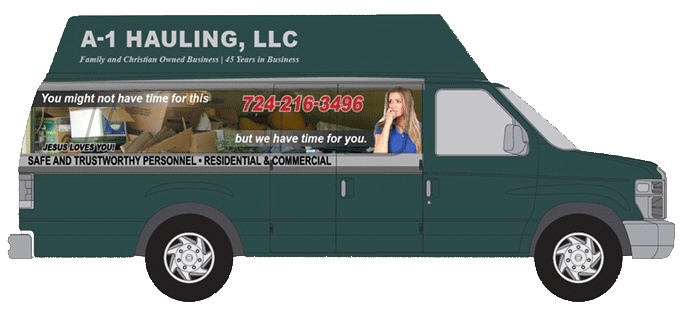
Author: Ed Wilkins
Ed Wilkins is the founder and owner of A-1 Hauling, a company celebrated for its integrity and dedication to providing top-notch hauling services. With a foundation built on honesty, trustworthiness, and hard work, Ed and his team have earned a reputation for delivering safe, gentle, and stress-free services to their clients.

